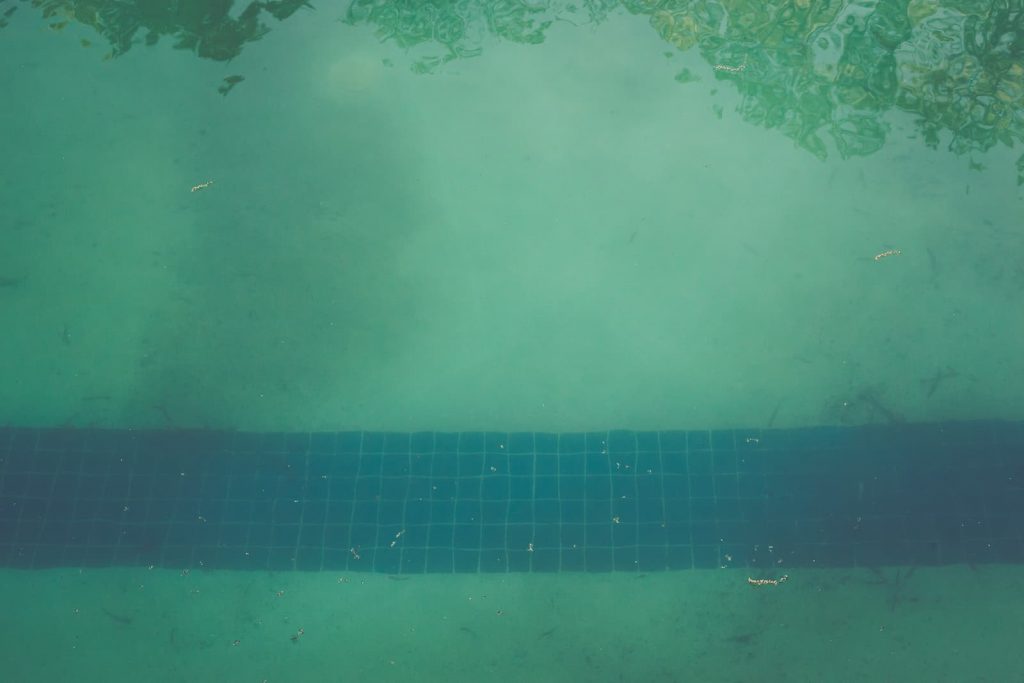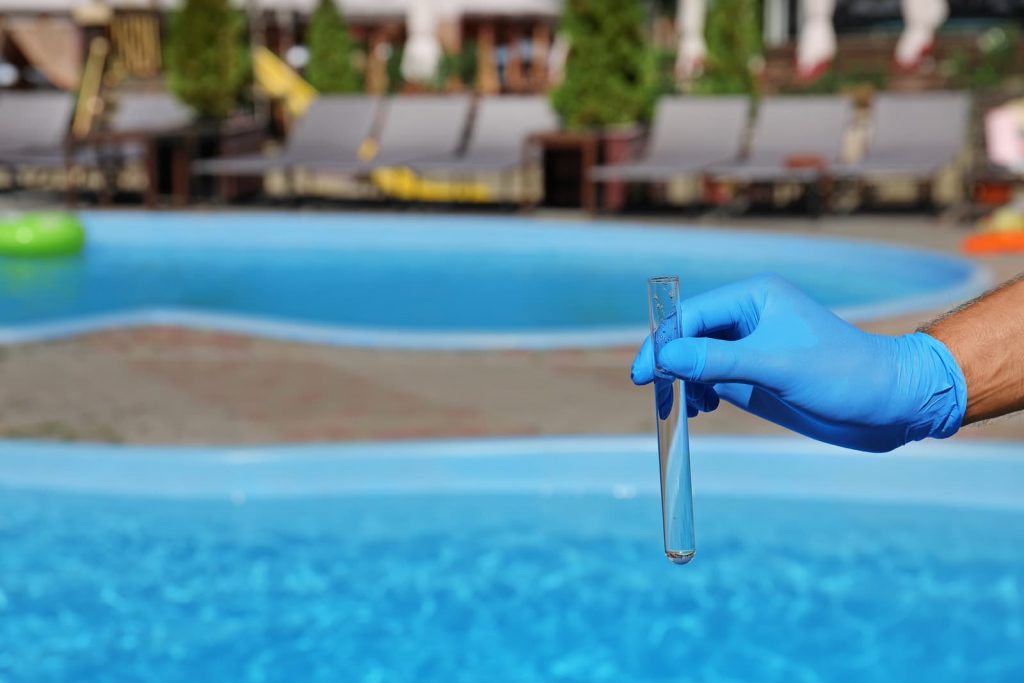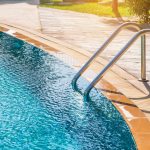Understanding Algae Prevention and Common Algicides
At Pool Operation Management, our philosophy is that chlorine is the best algaecide. In addition to maintaining proper sanitizer levels and brushing regularly, it’s the best way to prevent algae growth. However, a Certified Pool Operator ® must be knowledgeable in every aspect of algae prevention. Understanding the different types of algicide will help you pass a CPO® certification test and successfully carry out operations at any swimming facility.
Causes of Algae Growth
There are several environmental factors that contribute to algae growth including sunlight, temperature, humidity, and other facts of nature. There are also algae-fostering nutrients that pass into the pool when swimmers enter and through airborne debris. Requiring all swimmers to shower before entering the pool can help minimize nutrient entry. Proper filtration, circulation flow, eliminating dead spots, and sufficient levels of disinfectant are also algae-prevention techniques that a CPO ® can control. Routine super chlorination and algicide use on a regular basis are also exceptional tools in algae prevention. Finally, make sure to regularly brush the pool and spa walls to prevent buildups.
Algicides
Algicides are disinfectants that chlorinate or brominate water to kill and prevent algae growth. Commercial swimming facilities use automatic chemical feeders, controllers, and probes to maintain the proper amount of disinfectant at all times for superior control. Without these systems, a facility is at greater risk of algae growth. The algicides used in these systems come in different forms and operate in different ways to achieve results. No matter what you use, always read product labels and carry out the application carefully.
Quaternary Algicides
One of the more common algicides is quaternary ammonium algicide, often called “quats.” Quaternary means there are four groups bound to the nitrogen atom, ammonium. Quats have been used for years to kill algae and are usually added in small doses on a weekly schedule to maintain a quat residual in the water. This residual prevents further algae growth, as the disinfectant levels never drop to zero. A disadvantage of quat algicides is they can cause foaming if the water is agitated, however proper doses reduce the frequency of the issue. This foaming limits their use in spas or fountains. Quats contain no metals and do not contribute to surface staining.
Polymeric Algicides
Polymeric quaternary ammonium algicides are often referred to as “poly quats.” They have been used for years and do not cause foaming in agitated water. As a result, poly quats are often used in recreational pools, spas, fountains and other places with high water agitation. These also contain no metals and do not contribute to surface staining. The polymer contains a positive electrical charge that attracts the negative charge of algae. One issue is that it can attach to dirt and debris, diluting its effectiveness.
Metallic Algicides
Copper is the most common metal that is used to kill and prevent algae. Copper itself is not soluble in water but copper salts like copper sulfate are. These algicides have a deep blue or blue-green color and excel at killing most types of algae. They are especially effective against black algae, often the most difficult type to kill.
Unfortunately, copper algaecides are not stable in the presence of chlorine. The chlorine can oxidize copper and leave black stains on pool surfaces. They can also bond with high concentrations of carbonate and stain plaster surfaces with a blue-green color. Adding too much algaecide also increases the risk of staining.

Proper Pool Care and Maintenance
There are more types of algicides used for algae prevention and the best way to learn about residential and commercial pool care is through CPO® certification. Pool Operation Management offers award-winning CPO® certification courses to give you the most comprehensive education in everything involved with pool operation.
Over a two-day course or during online training, our experienced professionals will not only help you get certified, but you will acquire real-world knowledge to aid you in your career of pool operation.
We also offer professional pool maintenance for both residential and commercial pools, pool operation consulting and can even act as an expert witness in pool-related legal cases. To start your CPO® certification courses or use our many services, contact Pool Operation Management today.







